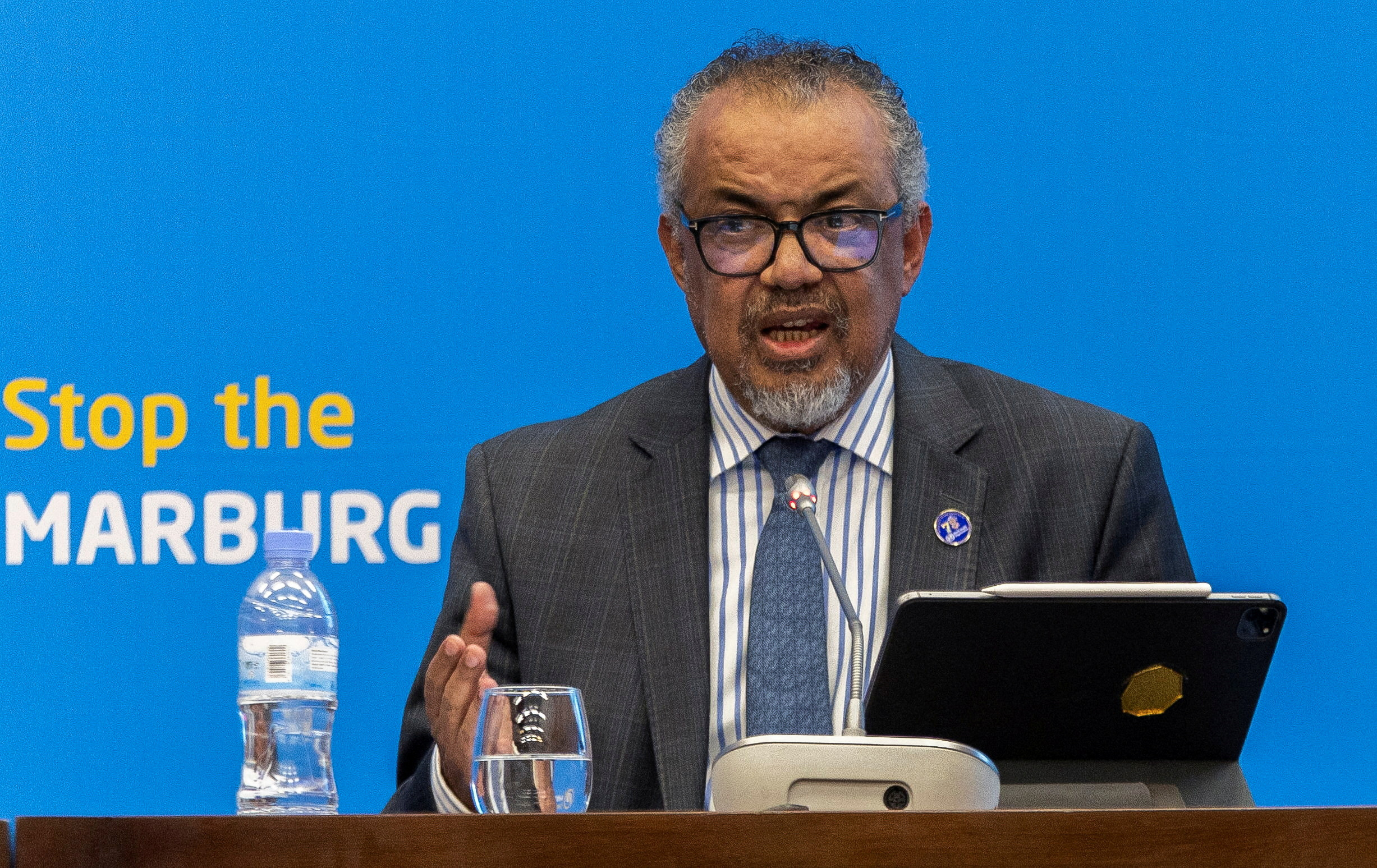
World Health Organization Director-General Tedros Adhanom Ghebreyesus addresses a press conference on the Marburg virus outbreak at the Kigali Convention Center in Kigali, Rwanda, October 20, 2024. FILE PHOTO/REUTERS
GENEVA — The WHO said Tuesday that a suspected outbreak of the deadly Marburg virus in Tanzania had killed eight people, warning that the risk of further spread in the country and region was “high”.
The United Nations health agency said it had informed its member states on Monday of “an outbreak of suspected Marburg Virus Disease (MVD) in the Kagera region” of Tanzania.
“We are aware of nine cases so far, including eight people who have died. We would expect further cases in coming days as disease surveillance improves,” World Health Organization chief Tedros Adhanom Ghebreyesus said on social media platform X.
READ: Marburg: What to know about the latest killer virus without a cure yet
“WHO has offered its full assistance to the government of Tanzania, and to affected communities.”
The announcement came less than a month after WHO declared over a three-month Marburg outbreak in neighboring Rwanda, which killed 15 people.
Marburg causes a highly infectious hemorrhagic fever. It is transmitted from fruit bats and belongs to the same family of viruses as Ebola.
With a fatality rate that can reach close to 90 percent, Marburg’s fever is often accompanied by bleeding and organ failure.
READ: Tanzania detects its first-ever cases of the highly fatal Marburg viral disease
The Kagera region experienced its first Marburg outbreak in March 2023, lasting for nearly two months, with nine cases including six deaths, WHO said.
It pointed out that “zoonotic reservoirs, such as fruit bats, remain endemic to the area”.
WHO said it assessed the risk at the national level as “high” due to several concerning factors.
These included the high known fatality rate of 89 percent, that “the source of the outbreak is currently unknown” and that cases had been reported from two districts, suggesting “geographic spread”.
“The delayed detection and isolation of cases, coupled with ongoing contact tracing” indicated a lack of “full information” on the outbreak, it said.
The UN health agency also estimated the regional risk as “high”, due to Kagera’s “strategic location as a transit hub with significant cross-border movement of population to Rwanda, Uganda, Burundi and the Democratic Republic of Congo”.
Reportedly, some of the suspected cases were in districts near international borders, it said, “highlighting the potential for spread into neighboring countries”.
“We recommend neighboring countries be on alert and prepared to manage potential cases. We do not recommend travel or trade restrictions with Tanzania at this time,” Tedros said on X.
WHO pointed out that Marburg is not spread easily, and typically requires contact with the body fluids of a sick patient with clear symptoms.
“However, it cannot be excluded that a person exposed to the virus may be travelling,” it said.
It assessed the global risk as “low”, pointing out that there was no confirmation of international spread at this stage, but stressing the need for enhanced surveillance.

